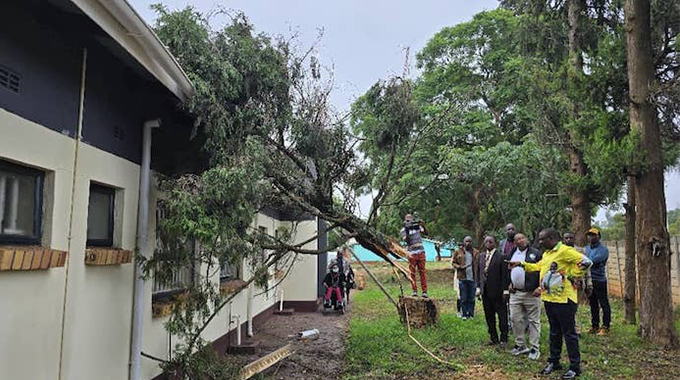Rate mismatch cramps workers

Leonard Ncube, [email protected]
THE periodic exchange rate movement emanating from the currency value mismatch between the Zimbabwean dollar and the United States dollar is creating distortions that shortchange workers who are always on the receiving end each time prices are being adjusted.
This and other concerns were brought to the fore yesterday during submissions by representatives of workers who suggested that salaries for both public and private sector workers be indexed in forex, taking into account the now dominant dollarisation in the economy.
The issue is among the key topics under discussion at the ongoing Tripartite Negotiating Forum (TNF) Social Dialogue Retreat in Victoria Falls where the Government, private sector, and labour stakeholders are gathered.
The TNF retreat started on Monday and will end on Friday with ministers and deputy ministers from various line ministries, representatives of organised business and organised labour, and international partners attending.
It is running under the theme, “Social dialogue for nation building,” and seeks to create a platform for cohesion between the three social partners. In a presentation on behalf of the labour bodies, Ms Florence Taruvinga, who is also the Zimbabwe Congress of Trade Unions president, said the restoration of decent work and sustainable salaries was critical in Zimbabwe’s transformation journey and called for the strengthening of institutions and social contract towards a united national vision.
She urged the Government and employers to consult widely with workers on issues on key policy matters while mainstreaming respect for workers’ rights.
“The demand for workers’ salaries in United States dollars is not a demand to try and fight anyone, we are merely responding to the market in Zimbabwe that has dollarised,” said Ms Taruvinga.
“The discrepancies between the Zimbabwean dollar and US dollar, and market rate and interbank rate is affecting us as workers in Zimbabwe, that is why you see we will not have common ground when these issues are discussed.”
Citing the recent exchange rate movement and the resurgent market indiscipline, which has seen some businesses disregarding monetary policy guidelines and creating artificial commodity shortages with some forcing consumers to exclusively buy in forex, Ms Taruvinga said such issues were frustrating workers and urged the TNF to tackle them.
She also urged the Government to engage labour when crafting Statutory Instruments some of which negatively affect workers and create loopholes for employers to take advantage of workers while pursuing profits.
“Let’s sit down and discuss so that we don’t have policies that contradict each other,” said Ms Taruvinga.
“For us in the labour movement, the benefits of social dialogue are immense. Structural improvements of working conditions can be achieved.”
In his remarks, Finance, Economic Development and Investment Promotion Minister, Professor Mthuli Ncube, who leads the Government at the TNF acknowledged the workers’ concerns and challenged them not only to focus on the problems they face but also help proffer solutions to make the country thrive.
He said the Government greatly values collective engagement as it buttresses the broader engagement and re-engagement thrust under the Second Republic.
“It is our considered view, as Government, that our engagement should go beyond discussing challenges but include the exchange of notes, ideas or positions on important matters that confront us including issues of labour and employment sphere,” said Prof Ncube.
“We appreciate there are legacy issues to be dealt with. However, we have strived to let bygones be bygones through embracing each other as social partners in defining a new destiny.
“Indeed, change and reform cannot happen overnight but, in our view, there has been progress and as the President notes, ‘brick by brick’ we shall rebuild this nation.”
Prof Ncube said he was convinced that the Kadoma Declaration, a framework for economic recovery, social justice, and national unity remains relevant to engagement by social partners.
He said the Government was alive to workers’ and citizens’ challenges hence several attempts have been made to conclude a social contract on several economic issues like prices and income stabilisation, restoration of production viability and mobilisation, pricing, and management of foreign currency.
“We need to interrogate the reasons for the implementation inertia of these protocols so that we avoid making the same mistakes. After long engagements and discussions, the voluntary forum was transformed into legislation in 2019 through a Tripartite Negotiation Forum Act of 2019,” said Prof Ncube.
“The people of Zimbabwe have gone through a long period of challenges that have caused distrust, which the social contract under the TNF seeks to overcome so that all players can work towards one Zimbabwe we all want.”
He said the enactment of the TNF was part of President Mnangagwa’s commitment to foster inclusive participation and economic growth in line with the principle of leaving no one and no place behind.
“On our part as Government, we are prepared to work towards building trust and we also expect the other social parties of the TNF to undertake such a commitment,” he said.
Prof Ncube also said the Government was committed to ensure that the TNF is adequately resourced and capacitated to fulfill its mandate effectively within the available resource envelope.
He urged social partners to thoroughly consult within their lower-level structures so that issues discussed and agreed upon at higher levels are a true representative of the people of Zimbabwe.
Chairperson of the TNF, who is also Public Service, Labour and Social Welfare Minister, Cde July Moyo, said the TNF was a crucial platform for the good of the country.
“We are here to plan and highlight urgent areas hence we need to strengthen our institutions, which will help us to hold each other to book.












Comments